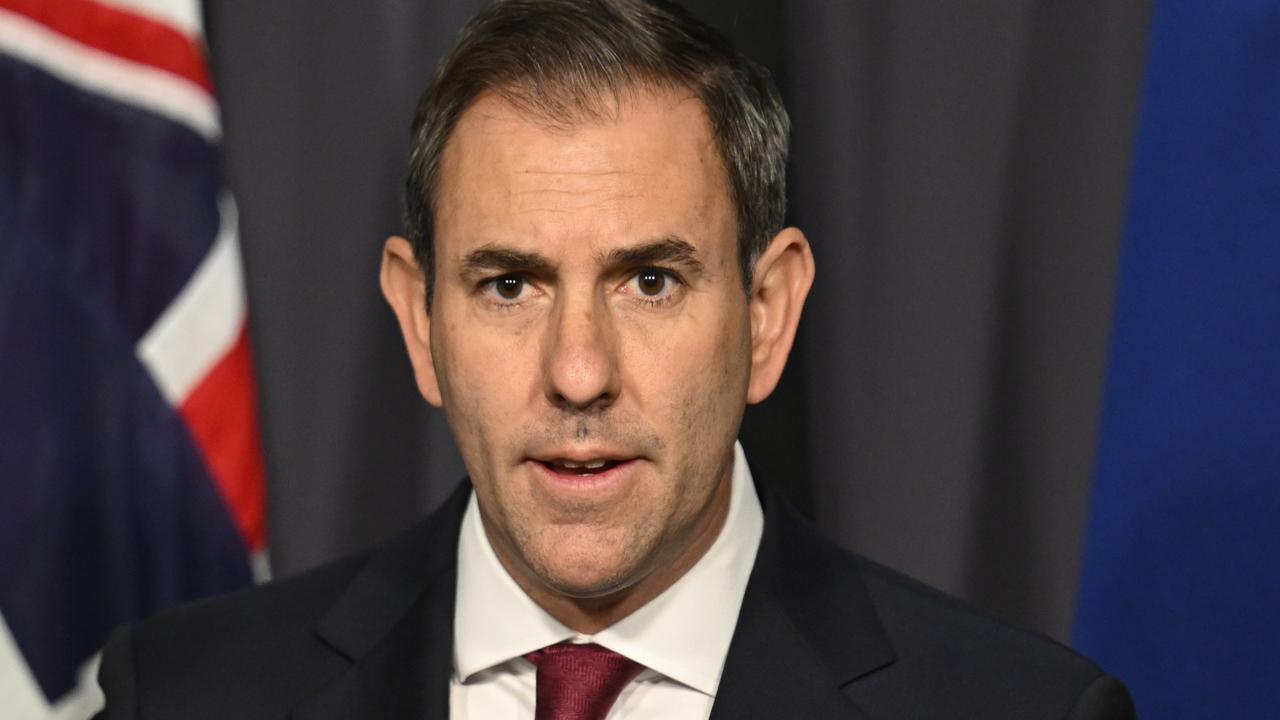‘You don’t care?’: Karl’s brutal China question
Defence Minister Richard Marles has dismissed concerns over China’s disastrous reaction to the AUKUS submarine deal during a grilling from Karl Stefanovic.

Australian Defence Minister Richard Marles has batted away concerns about China’s reaction to the recently announced AUKUS submarine deal, saying: “China is going to say what it’s going to say.”
Mr Marles made the comment during a grilling by Today host Karl Stefanovic this morning.
On Monday, Prime Minister Anthony Albanese announced the landmark submarine deal that promises to transform Australia into a naval heavyweight. But by Tuesday morning, China had responded with a troubling warning.
Wang Wenbin, China’s foreign ministry spokesman, went as far as to call the AUKUS alliance a “typical case of Cold War mentality”.
“The latest joint statement from the US, UK and Australia demonstrates that the three countries, for the sake of their own geopolitical interests, completely disregard the concerns of the international communities and are walking further and further down the path of error and danger,” he said.
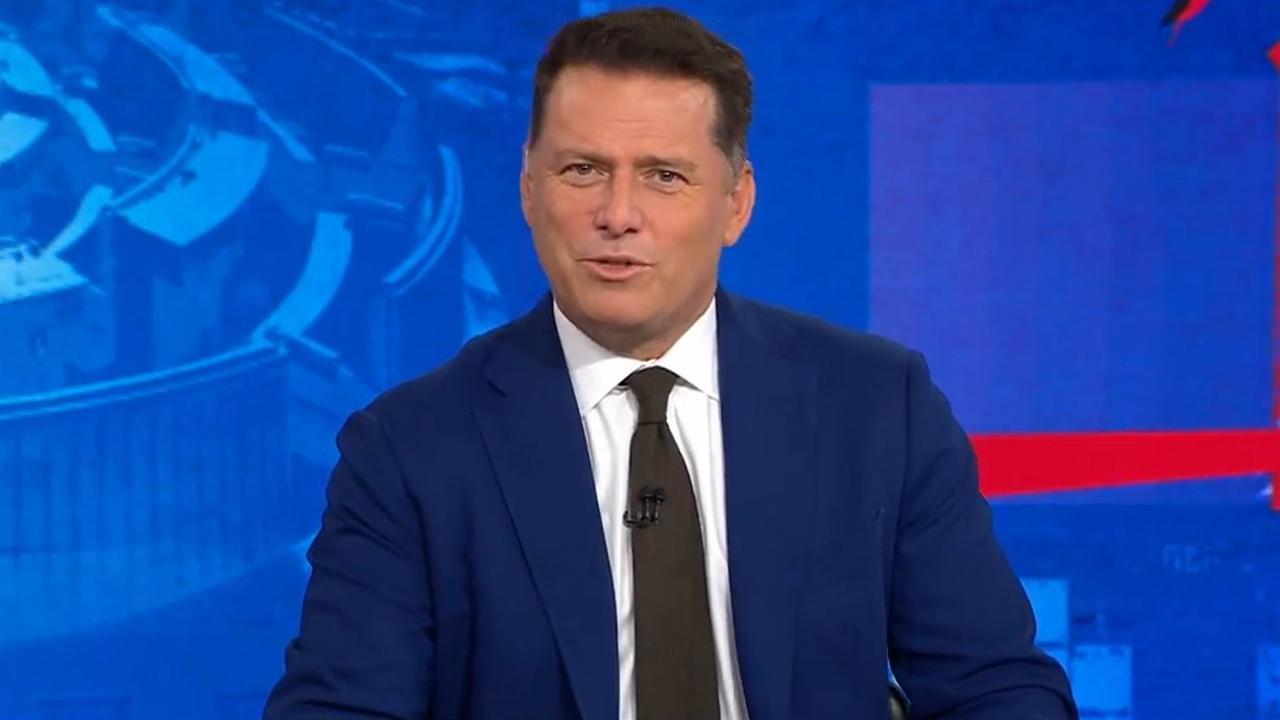
But during the interview on the Channel 9 morning show, Mr Marles, who is also deputy prime minister, dismissed concerns over the AUKUS deal, even accusing Australia’s Pacific neighbours of a military build-up.
Asked by Stefanovic how the submarine deal would impact Australia-China diplomacy, Mr Marles said: “We are focused on Australia’s national interest. Obviously China will speak for itself, but part of the landscape in which we are making this decision is against the backdrop of the biggest conventional military build-up that we have seen since the end of the Second World War.
“That is not Australia doing that; that is what we are seeing within our region. For us not to come to terms with that, have an appropriate response to it, is for us to be condemned by history,” he said.
“We need to be making sure that Australia can be self-reliant as a country going forward – that’s what we hand on to our kids and grandkids as a nation – and that we are able to keep ourselves safe. That is why it is really important that we are taking the step that we are.”
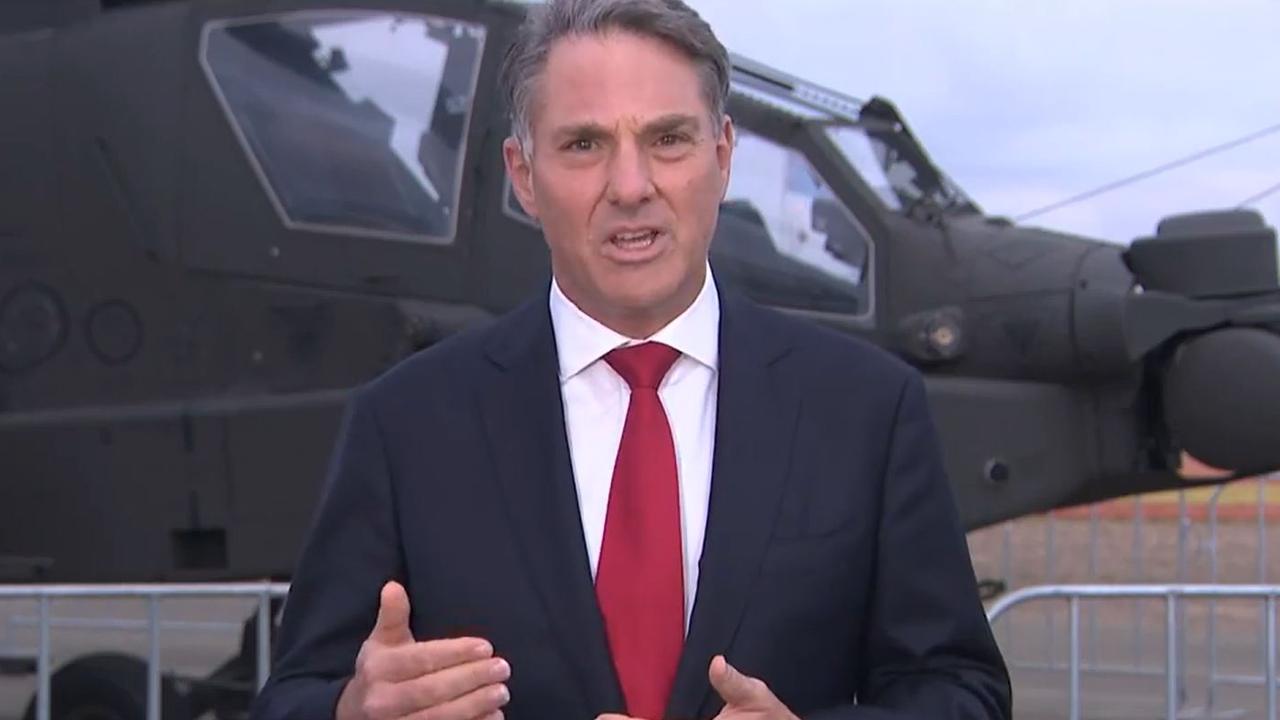
Stefanovic pressed further, asking whether Mr Marles “cared” that China had effectively accused the Australian Government of waging a cold war, but Mr Marles dismissed the concern.
“Well, China is going to say what it is going to say. I mean at the end of the day, we are responsible for looking after Australia’s national interest,” he said.
“I will be really clear – China is our largest trading partner. We want to have the best relations we can and we would value a productive relationship with China. We will continue the process of seeking to stabilise our relationship with China. But that doesn’t mean that we don’t pursue our own national interest and make sure that we are doing what we need to do to keep Australia safe.”
The Minister said he and other members of government had made “more than 60 calls” to foreign leaders in the past week to explain the submarine agreement.
“At the heart of what we are doing is making Australia’s contribution to the regional security, the collective security of our region, and to the maintenance of the global rules-based order within our region. That is the heart of our intent here,” he said.
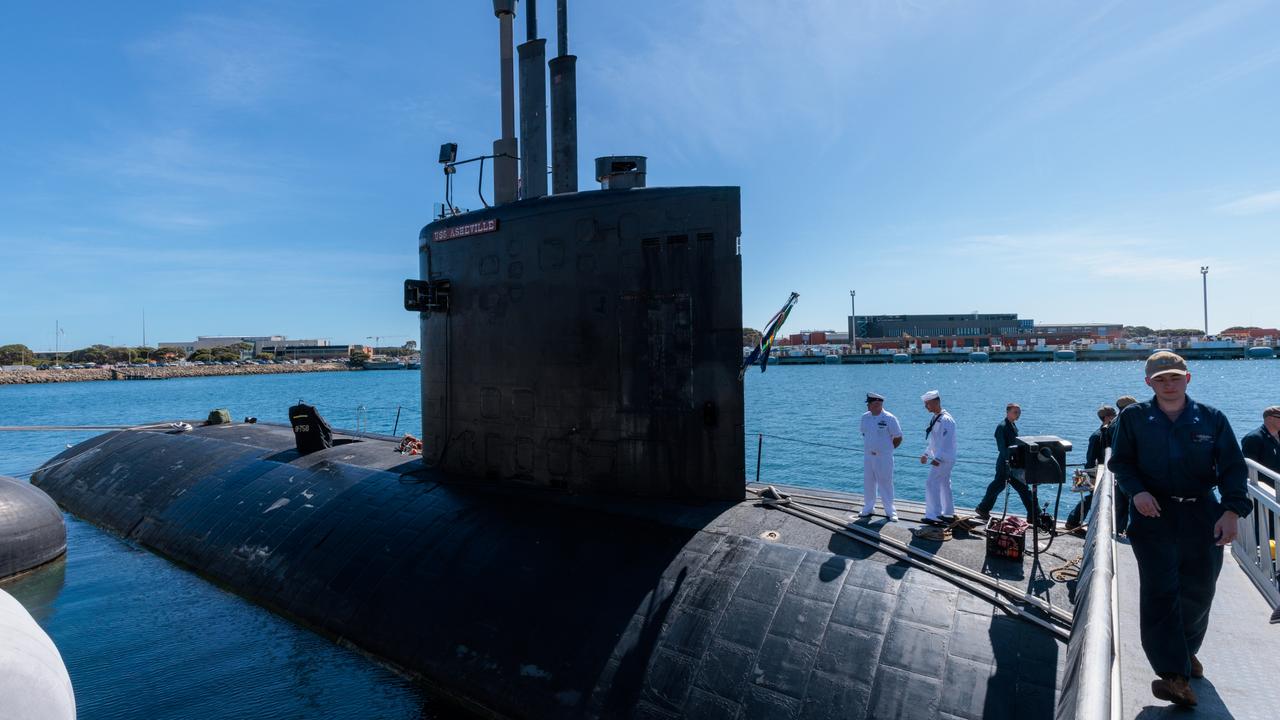
China, Russia respond to subs deal
In its attack, China also made the extraordinary claim that the sale of the submarines “constitutes a severe nuclear proliferation risk, and violates the aims and objectives of the Non-Proliferation Treaty [NPT]”.
The United Nations NPT aims to prevent the spread of nuclear weapons and weapons technology around the world. UN nuclear watchdog, the International Atomic Energy Agency (IAEA) said it had to ensure there were no proliferation risks from the deal.
“Ultimately, the Agency must ensure that no proliferation risks will emanate from this project,” IAEA chief Rafael Grossi said.
Russia, which has sought to shore up its ties with China, also accused the West of stirring up “years of confrontation” in the Asia-Pacific region with the deal.
“The Anglo-Saxon world, with the creation of structures like AUKUS and with the advancement of NATO military infrastructures into Asia, is making a serious bet on many years of confrontation,” Russian Foreign Minister Sergey Lavrov said in televised comments.
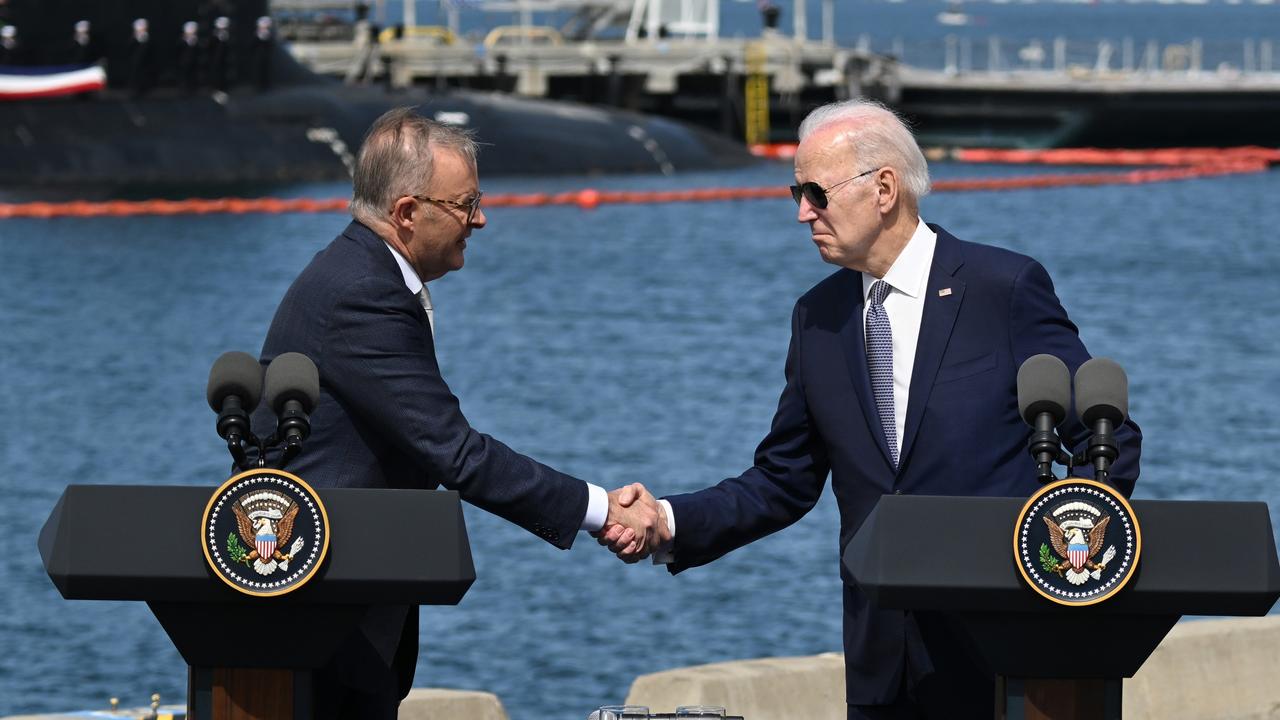
‘Stability for decades’
Monday’s announcement was made at an event at a naval base in San Diego, California, where US President Joe Biden hosted both Mr Albanese and British Prime Minister Rishi Sunak.
Under the deal, Australia will buy up to five US nuclear-powered submarines, then build a new model with US and British technology. It is part of an ambitious plan to bulk up Western muscle across the Asia-Pacific in the face of the growing threat posed by China.
Mr Biden stressed that Australia, which joined the alliance with the US and Britain, known as AUKUS, 18 months ago, will not be getting nuclear weapons.
With a US Virginia-class nuclear submarine moored behind the trio’s podium, Mr Biden said the US had “safeguarded stability in the Indo-Pacific for decades” and that the submarine alliance would bolster “the prospect of peace for decades to come”.
Meanwhile, Mr Albanese added that the deal represents the biggest single investment in Australia’s defence capability “in all of our history”.
The submarines are expected to be equipped with long-range cruise missiles, offering a potent deterrent.
The Australian Government estimates the multi-decade project will cost almost $40 billion in the first 10 years, and create an estimated 20,000 jobs.
Mr Albanese underlined that Australia was now only the second country, after Britain, to be granted access to US naval nuclear secrets.
Three conventionally armed, nuclear-powered Virginia-class vessels will be sold “over the course of the 2030s”, with the “possibility of going up to five if that is needed”, US national security adviser Jake Sullivan said.
Britain and Australia will then embark on building a new model, also nuclear-powered and carrying conventional weapons, dubbed the SSN-AUKUS. This will be a British design, using US technology, and with “significant investments in all three industrial bases”, Mr Sullivan said.
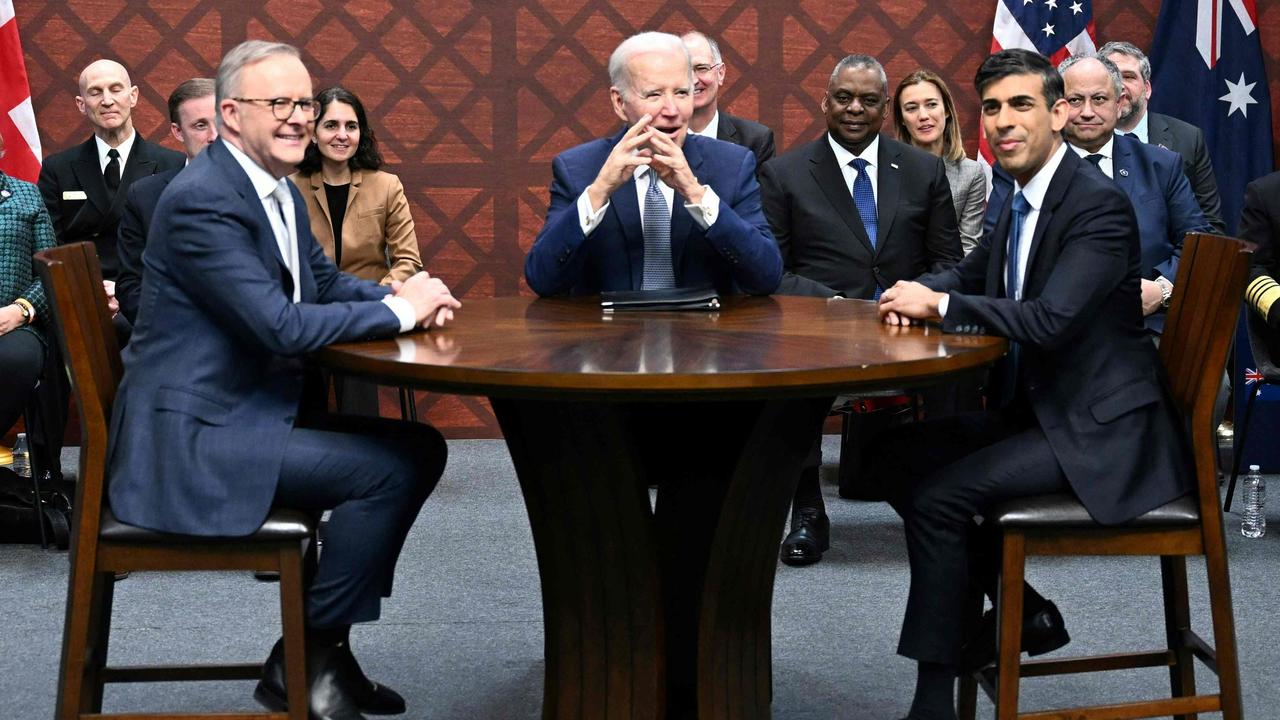
Defence spending on the rise
While Australia has ruled out deploying nuclear weapons, its submarine plan marks a significant new stage in the confrontation with China, which has built a sophisticated naval fleet and turned artificial islands into offshore bases in the Pacific.
In the face of the Chinese challenge – and Russia’s invasion of pro-Western Ukraine – Britain is also moving to beef up its military capabilities, Mr Sunak’s office said on Monday.
According to the UK government, more than $6 billion in additional funding over the next two years will “replenish and bolster vital ammunition stocks, modernise the UK’s nuclear enterprise and fund the next phase of the AUKUS submarine program”.
Australia had previously been on track to replace its ageing fleet of diesel-powered submarines with a $66 billion package of French vessels, also conventionally powered.
The abrupt announcement by Canberra that it was backing out of that deal and entering the AUKUS project sparked a brief but furious row between the three countries and their close ally France.
Compared with the Collins-class submarines due to be retired by Australia, the Virginia-class is almost twice as long and carries 132 crew members, not 48.
However, the upgrade will require a lengthy wait.
A senior US official said the British navy should get its SSN-AUKUS vessels in the late 2030s and Australia only in the early 2040s.
Chinese President Xi Jinping made a fiery statement last week, accusing America of leading a Western effort at “all-round containment, encirclement and suppression of China”.
But Washington says Beijing is alarming countries across the Asia-Pacific with its threats to invade the self-governing democracy of Taiwan.
“What we’ve seen is a series of provocative steps that China has undertaken under the leadership of Xi Jinping over the last five to 10 years,” the senior US official said.
“This is an attempt to defend and secure the operating system of the Indo-Pacific.”
– with AFP





